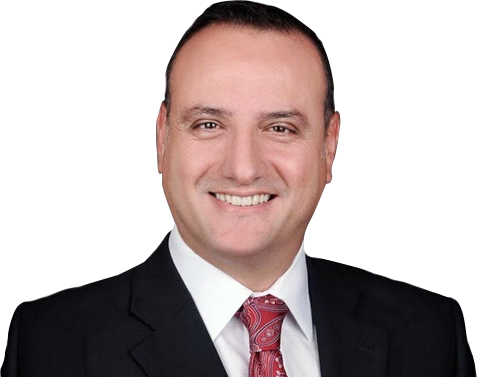
Life After Diabetes Surgery
Ileal Interposition surgery does not cause malabsorption. Absorptive length and capacity of your small intestines do not change significantly. So, food absorption capacity of small intestines does not reduce as well. Small intestines completely absorb and intake all required vitamins and minerals from foods.
However, you do not feel hungry like used to be after ileal interposition. Loss of appetite during first periods is observed by this reason. The cause for exhaustion, tiredness and fatigue is that you do not feel hungry hormonally and therefore you do not eat. These problems are temporary. Majority of the patients start to feel more energetic within one to two months.
The important issue during first days after ileal interposition is to drink water much. Hunger suppressing sense of the surgery will reduce sense of thirst. You may not want to drink water while your body is hungry to water and gets exhausted. Therefore, you may need to drink much water during first one to two months after the surgery. So, you will need to note what you eat and drink daily. This allows us to understand your fluid balalnce during follow-ups.
We release close follow-up during first period after 3 months in most of our patients. Because, ileal interposition surgery starts to create its physiology slowly. You eat soft and well cooked solid foods much during this period.
You should not quit your nutrition habits accordingly with diabetes for first 6 months.
“Remember!! Ileal Interposition does not eliminate or cure your diabetes completely. However, it controls all symptoms and associated problems of diabetes up to 95% in selected patients”.
If you forget that your diabetes stays there, recurrence of diabetes becomes easier.
A very valuable state of control for the disease is obtained by ileal interposition. Your task should be to enjoy this wellness status without abusing it.
Does my blood glucose increase even I have ileal interposition?
Ileal interposition provides blood glucose control at normal or close to normal levels by strong hormonal changes that it creates. Majority of our patients achieve this without needing any medication. However, diabetes is a multifactorial disease. Your blood glucose may fluctuate in emotional cases such as excitement, excessive sorrow, fear or depression where your adrenalin, glucagon, cortisol levels increase. You may need to use drugs or insulin depending on how long these period lasts. A similar case may appear when you had a severe trauma or operation. You may need to be treated more or less until you get over the problematic process. But you reach the status of control when everything goes well eventually. You may return to normal life with no medications.
How Will My Life Be After Ileal Interposition Surgery?
Different comments may be made for quality of life after ileal interposition surgery. If you ask to a patient during first periods, she/he will say that this is the most difficult period of her/his life. Because patients feels very exhausted. Can not eat due to nausea and retching which may start after the first week. Slogs away by drinking water. However, blood glucose of this patient is between 90 to 100.
Everything goes well for a patient after 3rd month. Nausea and retching disappears in general. Patients also learns how to eat. The basic rule is the separation of solids ad liquids as in all obesity surgeries. By increase of food and water intake, exhaustion is replaced with more energy.
The patient almost does not take vitamins and calcium pills everyday. Two or three days a week is sufficient.
The patient starts to forget diabetes after 6th month. Although the patient eats each meal, desert etc. with joy in the family meals, her/his blood glucose and interestingly blood pressure has become normal. She/he has not been using any drugs for high blood pressure since ileal interposition surgery.
None of the patients needs vitamin and mineral drugs after one year. 93% of the patients do not use diabetes drug or insulin injection. Drugs and dose frequencies used reduce so much. 7% is an important ratio. Because, 7 of 100 patients who were found eligible for the surgery may not provide the recovery response expected. We do not have a scientific data that will explain this yet. We seek the secret that diabetes is a multi-factorial disease. Familial (maybe hereditary) and environmental causes play role in diabetes.
Metabolic surgery, especially ileal interposition surgery actually reveals the wellness which exixts inside our patients but can not present itself. The operation works for patients who has not consumed insulin deposits and whose insulin producing cells were not damaged. Ileal Interposition removed the obstacles before insulin and beta cells. It removes load on beta cells and opens the key on the pancreas. Our patients’ own tissues and organs do the rest.
Will I Use Vitamin Drugs After Ileal Interposition for Lifetime?
The most important aspect of ileal interposition surgery is that the surgery does not cause any vitamin and mineral deficiency. Because, no shortening occurs in small intestine distance in ileal interposition surgery. All small intestines contribute into food absorption. Effect of ileal interposition does not depend on decrease of food absorption. Ileal Interposition changes progress of foods in the small intestine. Foods come to the last part first and then pass along the first part and travel all small intestine. Hormonal changes when Ileum which is the last part of small intestines contacts with food operated a hormonal breaking mechanism called “neuro-endocrine break”. Therefore, your sense of hunger strongly disappears after the surgery. You get full with very small portions within a short period.
All vitamins which should be absorbed in foods and vitally important, all minerals such as iron, B12, folic acid, copper, zinc, Vitamin D, calcium and phosphor are absorbed and replaced. No vitamin and mineral deficiency is detected during long term.
Patients want to eat very less due to excessive fullness during earlier period of the surgery after ileal interposition surgery. This case becomes normal within several weeks. Portions increase a little bit. Multivitamin and calcium support are given according to the deficiency in food intake. Drugs decrease once or twice a week after first one to two months. Almost all patients quit all vitamin and mineral drugs after 6 to 8 months.
Diarrhea or Constipation After Ileal Interposition
Your defecation frequency increases during the first period after ileal interposition about 1 to 3 months. Consistency becomes softer. Some patients may have diarrhea for 5 to 6 times per day for first months. This diarrhea may continue by decreasing in two of ten patients up to 6 to 8 months.
The most important issue that you should care while diarrhea continue after ileal interposition is to ensure to drink sufficient water. If liquid loss caused by continuing diarrhea is not replaced, hospitalization and serum treatment may ne necessary for one or two days. To protect your kidneys is very important. Therefore, you need to drink at east 1.5 liters of water per day.
Ileal Interposition will change fluid balance of your body. This period will last for several months after the surgery. Therefore, water intake is more important than food after ileal interposition surgery. Because, hormonal breaking mechanism called “neuro-endocrine break” does not suppress hunger only. You may not feel thirsty much. So, we especially ask you to follow your water consumption consciously.
Everything start to stay on course after a period. Your body gets used to the new physiology. Kidneys relieve by this means.
Close monitoring of your fluid balance becomes important when diarrhea appears. No intervention is required for diarrhea in most cases. For persistent diarrhea, intestinal antiseptics or antibiotics are used to prevent over proliferation of bacteria in the intestines. Sometimes, drugs that will stop diarrhea may be prescribed. Exhaustion may increase much when fluid loss is more. In these cases, intravenous fluid replacement treatment will provide relief.
Things That Should be Done In Case of Diarrhea:
- Drink at least 1.5 liters of water.
- Eat regularly.
- Eat more vegetable with fibers.
- Drug Therapy:
- Cipro 500 mg tb 2x1
- Biteral 500 mg tb 2x1
- Lomotil tb 2x1
- Do not use drugs without consulting with your doctor.
- If exhaustion and diarrhea increases, you may need to be hospitalized.
- Stool culture
- Stool microscopy
- Fat-free diet with much protein
- Intravenous antibiotic treatment
- Monitoring your kidney functions
- Balancing blood salts (Sodium, potassium)
You experience some exhaustion because of your fluid balance changing during first months after ileal interposition. Although this is tiresome during the first stage, it is completely temporary.
Diarrheas are generally caused by difference of absorption forms of last part and initial part of small intestines. Your small intestine will be modified in its new place and your diarrhea will reduce in time.
Another reason for diarrheas is replacement of numbers and places of bacteria which normally exist. In this case, over bacteria proliferation may be in question. This accumulation regresses to physiological limits in time.
Progress of foods entering into the intestines changes by ileal interposition surgery. Therefore, secretion of hormones from intestines (incretin and secretins) also changes. Your bowel movements increase by effect of these incretin and secretins. Effect of incretins will not disappear for a long period. However, your bowel movements will decrease by “intestinal adaptation”.
 English
English Turkish
Turkish

